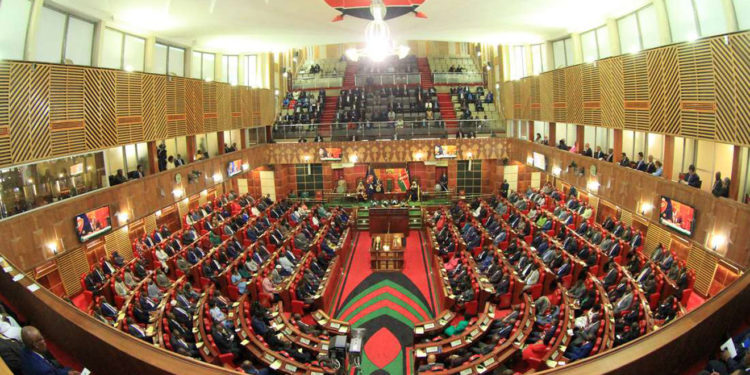Kenya’s National Assembly Finance and National Planning Committee has granted approval for the Capital Markets (Amendment) Bill, 2023. Sponsored by Mosop MP Abraham Kirwa, the legislation is crafted to establish comprehensive regulations and taxation measures for Kenya’s burgeoning cryptocurrency market.
Chaired by Molo MP Kimani Kuria, the committee extends its support to the proposed amendments to the Capital Markets Act, Cap 485. These amendments specifically target the inclusion of digital currencies within the definition of securities. Kuria underscores the legislation’s vital role in safeguarding the nation against illicit activities such as proceeds of crime and terrorism financing. Despite the widespread trading of cryptocurrencies by millions of Kenyans, there is currently no legal framework governing this digital asset class.
The primary objective of the Capital Markets (Amendment) Bill, 2023 is the introduction of taxation for crypto exchanges and digital wallets. The proposed legislation aims to impose transaction taxes, similar to excise duties applied to bank transactions, on the rapidly growing digital currency trade. Currently, banks deduct a 20.0% excise duty on commissions and fees related to transactions.
If the bill receives approval, individuals engaging in cryptocurrency transactions in Kenya will be obligated to pay capital gains tax to the Kenya Revenue Authority (KRA) when selling or using digital currencies. MP Abraham Kirwa underscores the importance of these changes, emphasizing their role in providing governance, oversight, and protection for citizens involved in the expanding cryptocurrency sector.
The proposed amendments cover specific provisions governing digital currency transactions, encompassing creation through crypto mining, regulations concerning trading, taxation, ownership, and the promotion of innovation within the sector. Kirwa also emphasizes the need to consider environmental aspects related to digital currency generation and crypto mining.
During the committee hearing, Kirwa asserts that cryptocurrency represents the future of financial transactions, urging Kenya to adopt and embrace these digital assets similarly to the successful adoption of M-Pesa, Safaricom’s mobile money transfer service. He expresses concern that while countries like South Africa and Nigeria have already legalized cryptocurrencies, Kenya’s Central Bank has been slow to regulate the sector, leaving local traders vulnerable to potential losses.
The largely unregulated nature of the global cryptocurrency sector poses challenges in assessing the value of digital assets held by Kenyan investors. Nonetheless, estimates suggest that the value could be significant, running into billions of shillings.
In addition to taxation, the bill mandates individuals dealing in digital currencies to provide specific information to the Capital Markets Authority (CMA) for taxation purposes. This includes details such as the amount of virtual currency in Kenyan shillings, the type of virtual currency transacted, and dates of acquisition and sale.
A United Nations report from the previous year reveals that Kenya has the highest percentage of its population engaged in cryptocurrencies in Africa, with 8.5% or 4.3 million people participating in the market. This surpasses developed economies like the United States, which ranks sixth with 8.3% of its population owning digital currencies.
The cryptocurrency market’s recent volatility, marked by significant price swings, has affected an estimated four million Kenyans, particularly young and small traders who entered the market seeking quick returns. Despite warnings from regulators, the appeal of cryptocurrencies persists, and the proposed legislation aims to strike a balance between fostering innovation and protecting market participants.
















